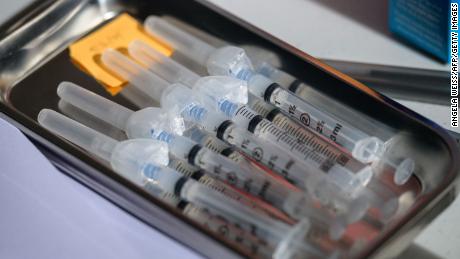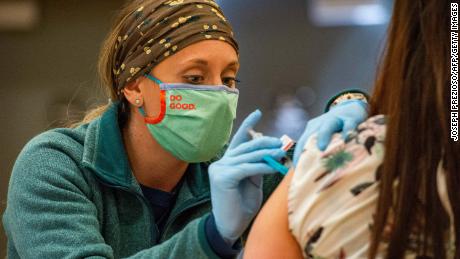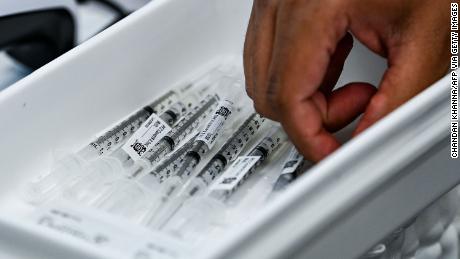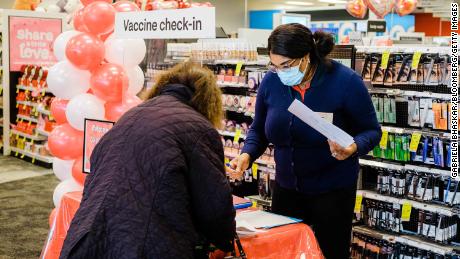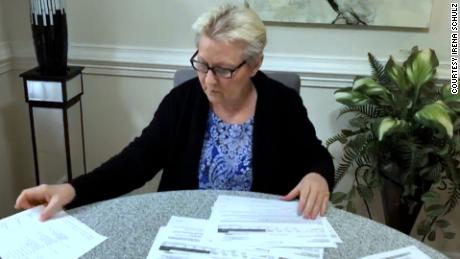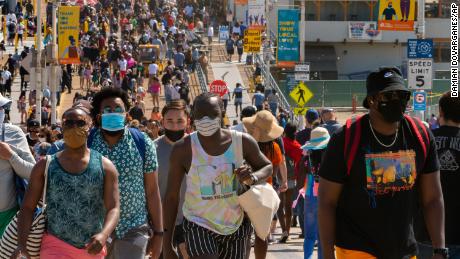For the first time in over a year, the US records a daily average of fewer than 20,000 new Covid-19 cases
“Cases, hospitalizations and deaths are all declining because of the millions of people who have stepped forward and done their part to protect their health and the health of their communities to move us out of this pandemic,” US Centers for Disease Control and Prevention Director Dr. Rochelle Walensky said in a recent White House briefing.
The US can push its Covid-19 numbers lower and help prevent Covid-19 outbreaks if more Americans are inoculated.
“We all have more work to do,” White House Covid-19 Response Team senior adviser Dr. Marcella Nunez-Smith said recently. “We have to continue to ensure everyone who is a ‘yes’ does not face barriers to vaccination.”
Moderna seeks full FDA approval for its emergency authorized vaccine
While new Covid-19 cases keep dropping as more Americans get vaccinated, Moderna said Tuesday it’s seeking full approval for its vaccine from the US Food and Drug Administration.
Since December, Moderna’s two-shot vaccine has been distributed under an FDA emergency use authorization for Americans ages 18 and up.
On April 13, the company announced its vaccine maintained over 90% efficacy six months out — the length of follow-up time needed to apply for FDA approval.
Moderna is the second company to seek such approval in the US. On May 7, Pfizer announced it was starting its own application for people ages 16 and up, following an April 1 announcement that its clinical trials showed over 91% efficacy after six months.
Experts say they expect vaccine protection will last much longer than six months, to be confirmed as more data come in.
Moderna said it will keep submitting trial data “on a rolling basis over the coming weeks with a request for a Priority Review.” A priority review asks the FDA to take action within six months, compared to the 10 months designated under standard review.
Both Pfizer and Moderna are also studying their vaccines in children as young as 6 months. Last month, the FDA granted Pfizer’s vaccine an emergency use authorization for children 12 to 15.
Full FDA approval could motivate some vaccine-hesitant Americans to roll up their sleeves, according to research released Friday by the Kaiser Family Foundation.
“Frankly, the only real difference was in length of follow-up” for efficacy, Offit said.
“The effectiveness and efficacy data in the Phase 3 trials and now in the real world … is excellent,” Offit said.
The first big holiday with millions fully vaccinated
For the first time in more than a year, millions of vaccinated Americans safely enjoyed close holiday gatherings without masks on Memorial Day.
In California, “it feels very, very close to normal,” Santa Monica resident Bob Alfera said. “And it’s nice to see people really all in a good mood.”
Health experts hope vaccinations will blunt a post-holiday spike this year. But vaccines only work if people take them.
“It’s great news that people can see their friends, they feel comfortable to travel because they’re vaccinated,” former Harvard Medical School professor William Haseltine said.
“The bad news is if you are not vaccinated, you are still at risk, and your risk is about as high as it was before.”
The danger is far from passed
Any country that thinks the pandemic is over is wrong, said World Health Organization Director-General Tedros Adhanom Ghebreyesus.
“We’re very encouraged that cases and deaths are continuing to decline globally, but it would be a monumental error for any country to think the danger has passed,” he said.
“One day — hopefully soon — the pandemic will be behind us. But the psychological scars will remain for those who have lost loved ones, health workers who have been stretched beyond breaking point. and the millions of people of all ages confronted with months of loneliness and isolation.”
While many vacationers enjoyed Miami Beach over the weekend, the mayor worried that “too many people are coming” to the scenic city.
“The virus is still here,” Mayor Dan Gelber said. “The volume of people that have been coming here is very unprecedented.”
CNN’s Michael Nedelman, Rebekah Riess, Naomi Thomas, Sahar Akbarzai, Pete Muntean and Greg Wallace contributed to this report.
![]()



